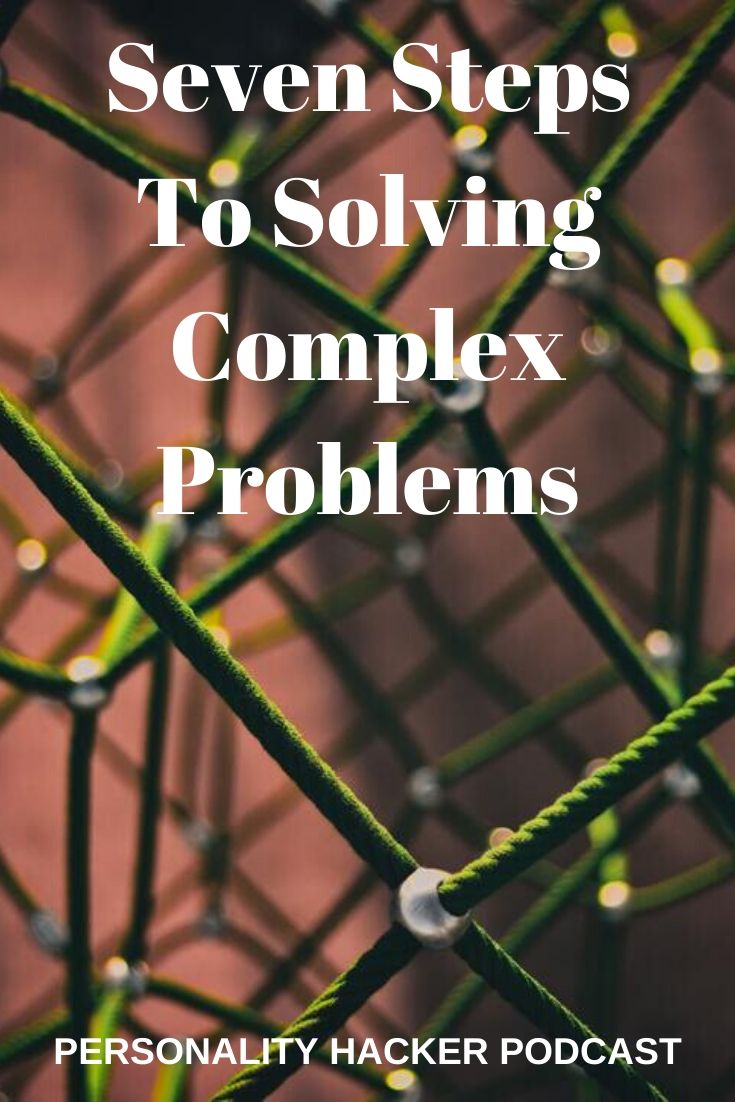Download Episode Here – right click link and select “Save Link As…”
In this episode, Joel and Antonia talk about the steps needed to solve complex problems in your personal life and the world at large.
In this podcast you’ll find:
- In difficult times, problems come to the surface.
- Traditional approach: quickly solve the problem and be done with it.
- Problem-solving rooted in cause & effect versus system thinking.
- What is system thinking?
- “When we don’t see a system, we break it.” (Gregory Bateson)
- Avoiding problem replication through accurate diagnosis.
- System Map Drawing.
- For any change in your life/area of dissatisfaction, start looking at the system that created the current emergent.
- Meeting a problem at its actual complexity level.
- Start thinking of your own problems as systems.
- The ease of oversimplifying: even the wrinkles in our brains are becoming shallower (Book ‘The Shallows’).
- We go between indulgence/negligence (during homeostasis) and impatience/un-resourcefulness (during crises).
- Use homeostasis to train our minds in finding personal satisfaction in problem-solving.
-
7 steps in the lifecycle of a problem:
- Inception (initial condition of a system)
- Identification (awareness & pain)
- Diagnostic
- Solutions (actions)
- Test-iterate (solutions)
- Maintenance
- Completion (integrated into lifestyle)
- “If I had 60minutes to save the world, I would spend 55 defining the problem.” (Einstein)
- We replace bad systems with slightly better ones.
- Vetting a solution’s effectiveness with time and scale.
- The importance of not letting yourself off the hook when things start to feel better.
- Real solutions involve behavioral change and maintenance.
- The best place to start is with yourself – how to solve problems in your own personal life.
- Connecting the dots with a Personality Type Example: “I am so different from my family”.
- Applying system thinking to your own life.
- Contributing to solving the world’s most complex problems through better thinking.
To subscribe to the podcast, please use the links below:
Subscribe with iTunes
Non-iTunes Link
Soundcloud
Stitcher
Google Play
Spotify
Radio Public
PlayerFM
Listen Notes
If you like the podcast and want to help us out in return, please leave an honest rating and review on iTunes by clicking here. It will help the show and its ranking in iTunes immensely! We would be eternally grateful!
Want to learn more?
Discover Your Personal Genius
We want to hear from you. Leave your comments below…


Share:
Podcast - Episode 0333 - Starting Your Own Business For Personal Growth - Part 2
Podcast - Episode 0335 - Does Your Personality Type Change Over Time (with Dr. Dario Nardi)
11 comments
I like Antonia’s description of our behavior as being impatient during a crisis but negligent during peace.
I think a lot of times people refrain from making changes because it is quite difficult, and often takes longer than we anticipate (so when a change fails to produce good good results immediately, we may give up on it prematurely).
As a personal example, I could see from my previous career direction that the most prominent path for advancement and success would be in increasingly extroverted roles, such as management.
I considered my options and have since switched to another field that I anticipate will allow me to perform at a high level but in roles that fit better with my talents and personality. However, I expect this change will require several years (or more) to fully realize, which is frustrating at times now that I’m in the middle of the process.
I think one challenge our societies may have is simultaneously utilizing both ‘triage’ (rapid solutions during urgent situations) and systems thinking, when appropriate. Triage may be over-used in modern society, but it does have its place as well. And different people may have either of these as a strength.
As an example, I tend to think more in long-term solutions, while my wife is better at dealing with urgent situations. I noticed that, during the beginning of the current pandemic (before lots of people were infected in my country), I took the disease more seriously than she did, perhaps based on its long-term implications. However, I also noticed that, once we started dealing with the presence of higher infection numbers locally and nationally, my wife was more vigilant than I was at recognizing immediate threats for disease transmission and taking appropriate preventative actions.